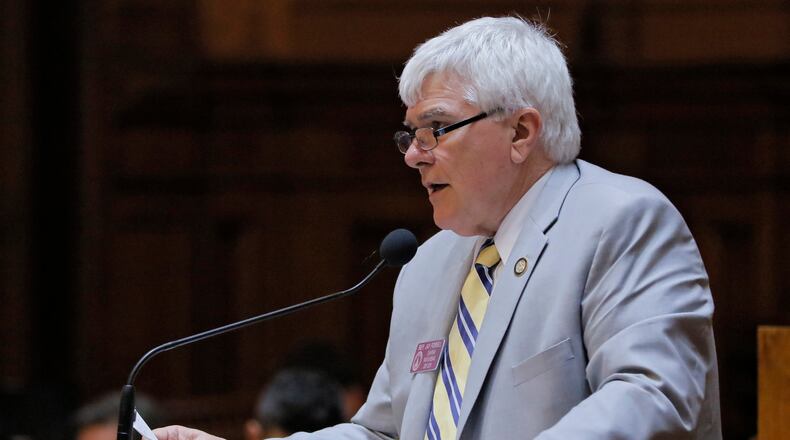The Georgia Senate backed legislation Tuesday that will provide a $200 million income tax cut - mostly to upper-middle and upper-income earners - and that aims to force e-retailers to collect sales taxes on what they sell.
House Bill 329 passed the House as a flat, 5.4 percent income tax rate for all Georgians, down from a top rate of 6 percent.
The Senate changed it to continue the current graduated system - which rises from 1 percent to 6 percent as a taxpayer's income grows. It cuts the top rate to 5.65 percent. It also would increase the personal exemption Georgians can claim by $300 per person.
Both versions eliminate a provision in state law that allows Georgians who itemize their deductions when they fill out their tax returns to write off their state income tax payments.
The Senate also tacked on House Bill 61, which would force online retailers with at least $250,000 or 200 sales a year in Georgia to either collect and remit to the state sales taxes on purchases or send "tax due" notices each year to customers who spend at least $500 on their site.
Copies of the notices would go to the state Department of Revenue so it would know who owes at least some of the taxes.
Senate leaders said the House version of the income tax bill would have meant a slight income tax increase for some single Georgians earning up to $60,000, and some families earning up to $90,000. They said the Senate version eliminated that slight increase.
Still, almost all the benefit would still go to upper-middle and particularly upper-income Georgians.
A state analysis obtained by the Atlanta Journal-Constitution shows that under the Senate plan, the income tax provisions would save select taxpayers - and cost state coffers - $292 million in 2019, and that would rise to $526 million by 2022.
The Senate also voted 46-7 in support of House Bill 155, which would make music production companies eligible for tax credits in hopes of keeping talent in Georgia.
Sen. Jeff Mullis, R-Chickamauga, called the measure a "jobs bill."
But Sen. Josh McKoon, R-Columbus, told colleagues the bill could amount to a state subsidy of up to $136 million a year for the music industry by 2022. McKoon said the money would be better spent giving all Georgians a tax break.
“All of us would like a tax credit,” McKoon said. “I am sure we could pick any industry we like and provide them with that kind of taxpayer subsidies and it would create jobs. But it makes it more and more difficult for us to provide the kind of broad-based tax relief we talk about.
“There is no one out in the hallway lobbying for the individual taxpayer.”
About the Author
Keep Reading
The Latest
Featured



